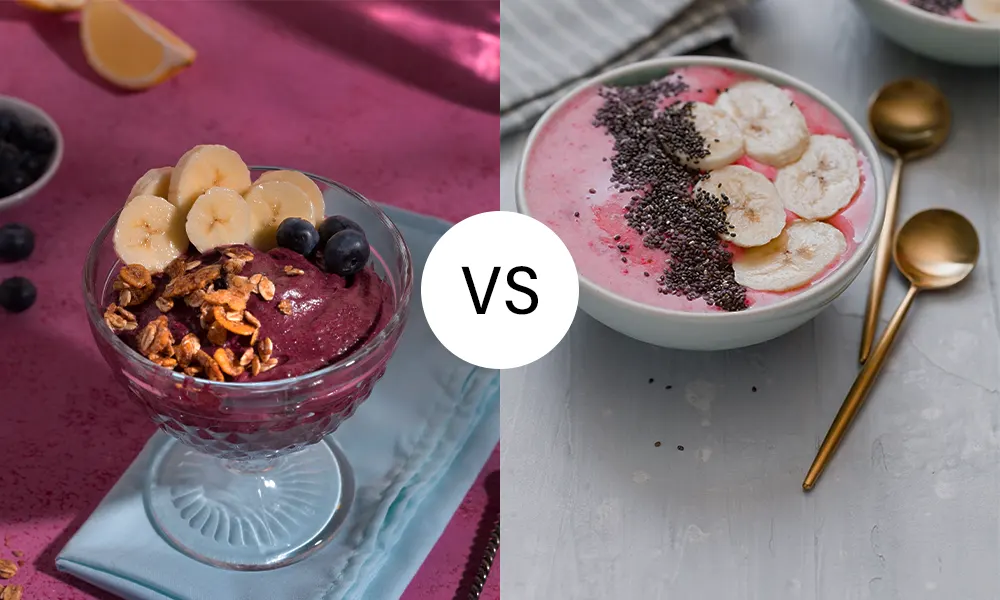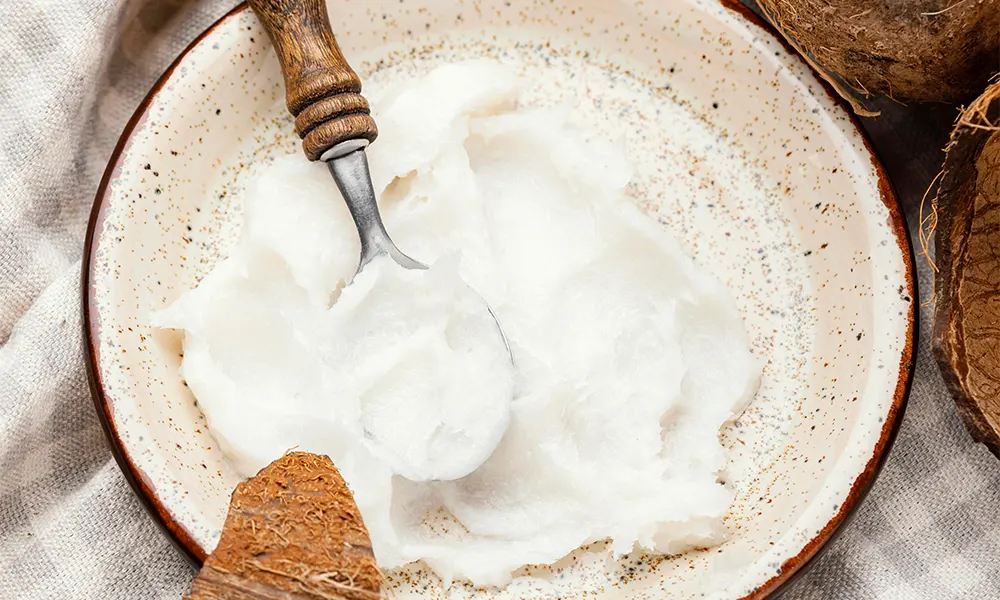Imagine this: it’s a hot day, you’re indulging in a tub of frozen yogurt, and your furry companion is staring at you with those irresistible, pleading eyes. The burning question pops into your mind: “Can dogs eat frozen yogurt?” While it might seem harmless to share a small scoop of this creamy treat, the answer isn’t as straightforward as you’d hope. It’s essential to weigh the potential benefits and risks to ensure your pup’s health and safety.
This guide takes a deep dive into the world of frozen yogurt for dogs, helping you navigate the nuances of this popular human indulgence. Whether you’re considering it as an occasional treat or a cooling snack during Australia’s scorching summers, understanding the pros, cons, and safe practices will equip you to make the best decision for your canine companion.
Benefits of Frozen Yogurt for Dogs
While frozen yogurt isn’t a necessary part of a dog’s diet, plain, unsweetened varieties can offer some limited advantages when consumed responsibly.
Refreshing Coolness
Frozen yogurt can be a delightful way to cool down your dog during Australia’s hot summers. Its creamy texture and chilled temperature make it an appealing treat, especially for pups who may not be keen on drinking enough water. However, it’s worth noting that hydration should primarily come from fresh water, not sugary or processed treats.
Probiotic Boost
Some frozen yogurts contain probiotics and live bacteria that support gut health. While the benefits of probiotics for dogs are still being researched, these friendly bacteria can help maintain a healthy digestive system. That said, the concentration of probiotics in commercial frozen yogurt is often minimal, making it a small bonus rather than a substantial benefit.
Calcium Source
Yogurt contains calcium, an essential mineral for strong bones, teeth, and muscle function. However, the amount your dog would consume in a small treat of frozen yogurt is negligible compared to their daily dietary needs. While it’s a nice perk, calcium from frozen yogurt shouldn’t replace the balanced nutrition provided by a quality dog food.
Risks of Giving Your Dog Frozen Yogurt
Despite its potential benefits, there are significant risks associated with feeding frozen yogurt to dogs. These dangers make it essential to exercise caution before sharing your treat.
High Sugar Levels
Commercially available frozen yogurts often contain high amounts of sugar, which can be harmful to dogs. Excessive sugar consumption contributes to weight gain, diabetes, and dental problems. Even so-called “healthy” or “natural” options can be packed with sugar, so always check the label.
Lactose Intolerance
Many dogs are lactose intolerant, meaning they lack the enzyme lactase needed to digest lactose, the sugar found in dairy products. Signs of lactose intolerance include diarrhoea, vomiting, gas, and bloating. If your dog has shown sensitivity to dairy in the past, frozen yogurt is best avoided.
Toxic Ingredients
Some frozen yogurts contain artificial sweeteners, with xylitol being the most dangerous for dogs. Xylitol is incredibly toxic, even in small amounts, and can lead to life-threatening drops in blood sugar, seizures, and liver failure. Always read the ingredient list carefully before considering frozen yogurt for your dog.
High Fat Content
Frozen yogurt often contains significant amounts of fat. While fat is a necessary component of a dog’s diet, excessive fat intake can lead to obesity and pancreatitis, a painful and potentially fatal inflammation of the pancreas.
Making Frozen Yogurt Safe for Dogs
If you’re determined to let your dog enjoy frozen yogurt, it’s crucial to do so safely and sparingly. Follow these guidelines to minimise risks:
Opt for Plain, Unsweetened Yogurt
Choose a yogurt variety that is plain, unsweetened, and free from harmful additives such as xylitol, artificial sweeteners, colours, and flavours. Look for options labelled with live and active cultures, which may provide a probiotic boost.
Start Small
Begin with a tiny portion, a teaspoon at most. Observe your dog closely for any adverse reactions, including vomiting, diarrhoea, or gas.
Monitor for Adverse Reactions
If your dog tolerates a small amount, you can consider offering frozen yogurt occasionally. However, any signs of digestive upset mean it’s time to discontinue.
Stick to Treat Portions
Even if your dog shows no adverse reactions, frozen yogurt should remain an occasional indulgence. Treats, in general, should make up no more than 10% of your dog’s overall caloric intake.
Dog-Safe Frozen Treat Alternatives
If the risks of frozen yogurt give you pause, consider these healthier and safer alternatives to keep your pup cool:
Frozen Bananas or Melons
Slice bananas or melons into bite-sized pieces and freeze them. These fruits are naturally sweet and free from added sugars or dairy, making them a safer option for your dog.
Puppy Popsicles
Create your own dog-friendly frozen treats by blending plain yogurt (ensure it’s xylitol-free) with fruit purees like strawberries or blueberries. Pour the mixture into ice cube trays and freeze for a homemade delight.
Ice Cubes
Sometimes, the simplest solution is the best. Ice cubes are an excellent way to cool your dog down, and most dogs enjoy chewing on them.
Final Thoughts
While frozen yogurt can be a tempting treat to share with your dog, it’s important to consider both the potential benefits and risks. By making informed decisions and choosing safe alternatives, you can ensure your pup enjoys a healthy, happy life.
When in doubt, always prioritise your dog’s safety and consult your veterinarian before introducing new treats into their diet. For more pet care tips or any other queries, reach out to Yo Hayo, your trusted guide for pet-friendly living. Contact us today!
FAQs
-
Is Greek yogurt better for dogs than regular frozen yogurt?
Greek yogurt can be a better choice for dogs as it generally contains less sugar and lactose compared to regular frozen yogurt. It is also higher in protein, which can be beneficial for your dog. However, ensure it’s plain, unsweetened, and free from harmful additives like xylitol or artificial sweeteners. If you plan to offer it as a treat, keep the portion size small and observe your dog for any digestive issues, as not all dogs tolerate dairy well.
-
Can dogs eat dairy-free frozen yogurt?
Dairy-free frozen yogurt may be a good option for dogs with lactose intolerance, but caution is still necessary. Ensure it doesn’t contain harmful ingredients like xylitol, artificial flavours, or excessive sugar. Look for plant-based alternatives with minimal additives. Even with dairy-free options, moderation is key. Too much can lead to digestive upset or weight gain. When in doubt, consult your veterinarian before introducing new treats into your dog’s diet.
-
How often can I give my dog frozen yogurt?
Frozen yogurt should only be an occasional treat for dogs. Limit servings to small amounts once every few weeks or during special occasions. Regular indulgence can lead to weight gain, dental issues, or digestive problems. Always choose plain, unsweetened varieties without xylitol or other harmful additives. For healthier alternatives, consider frozen fruit or homemade dog-friendly frozen treats. Your dog’s primary nutrition should always come from a balanced and species-appropriate diet.
-
What signs indicate my dog may be lactose intolerant?
Common signs of lactose intolerance in dogs include diarrhoea, vomiting, excessive gas, and bloating after consuming dairy products. If your dog experiences any of these symptoms after eating frozen yogurt or other dairy items, it’s best to avoid dairy altogether. Consult your veterinarian for confirmation and advice on safe treat options. Lactose intolerance is relatively common in dogs, so monitoring your pet’s reaction to dairy is crucial.
-
Can frozen yogurt help with my dog’s digestion?
Some frozen yogurts contain probiotics that can support your dog’s gut health. However, the benefits are minimal unless the yogurt is specifically formulated with active cultures suitable for dogs. If you want to improve your dog’s digestion, consult your vet for tailored probiotic supplements or dog-specific foods designed to promote gut health. Frozen yogurt should not be relied on as a primary source of digestive support. Always prioritise products made for pets.





